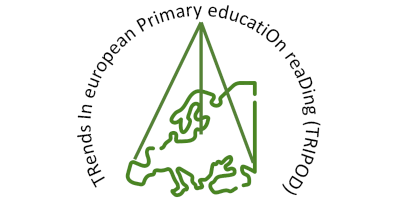TRIPOD – TRends In european Primary educatiOn reading
Through the Progress in International Reading Literacy Study (PIRLS), it is possible to compare trends in the reading skills of fourth graders in Europe over the past 20 years. Education authorities in European countries have taken different measures to meet the challenges of primary education in our time. The project "TRIPOD – TRends In european Primary educatiOn reaDing" aims to investigate the relationships between (1) the measures taken, (2) the trends in reading literacy, and (3) the composition of the student population in European Union (EU) countries. The results of this study will be used to better understand the impact of policies on student literacy.
Funding
TU Dortmund Young Academy
Project description
The project "TRIPOD – TRends In european Primary educatiOn reaDing" examines the links between (1) interventions, (2) trends in reading literacy, and (3) the composition of the student population in European Union (EU) countries. Between the 2016 and 2021 IGLU/PIRLS surveys, EU countries took various measures to curb the spread of the COVID-19 pandemic, and some countries experienced changes in student composition due to immigration. During this period, there have been significant changes in mean reading scores and student composition in several European countries (Frey, Ludewig et al., 2023).

The COVID 19 pandemic had a strong impact on the education system in Europe. As a result, schools had to close at times or switch to distance learning. The reactions of European countries to the situation varied greatly. While regular classes in Sweden were only slightly affected, many schools in the Czech Republic remained completely closed for several weeks. Studies in different European countries have shown that these circumstances had different effects on student learning outcomes (e.g., Germany: Ludewig et al., 2022).
To date, however, no international study has compared the direct impact of the COVID-19 pandemic on school performance and related it to the duration and extent of pandemic-related constraints and the characteristics of education systems. A better understanding of these relationships is important both for coming to terms with the events and for developing resilience strategies to minimize learning losses in future crisis situations.
References:
Frey, A., Ludewig, U., König, C., Krampen, D., Lorenz, R., & Bos, W. (2023). Lesekompetenz von Viertklässlerinnen und Viertklässlern im internationalen Vergleich: 20-Jahre-Trend. In Lesekompetenz von Grundschulkindern im internationalen Vergleich und im Trend über 20 Jahre (pp. 111–129). Waxmann. http://dx.doi.org/10.31244/9783830997009
Ludewig, U., Kleinkorres, R., Schaufelberger, R., Schlitter, T., Lorenz, R., König, C., Frey, A., & McElvany, N. (2022). COVID-19 pandemic and student reading achievement – findings from a school panel study. Frontiers in Psychology. 13:876485 https://doi.org/10.3389/fpsyg.2022.876485





![[Translate to English:] [Translate to English:]](/storages/ifs-ep/_processed_/8/5/csm_AdobeStock_412860748_9a2dbb816c.jpeg)
